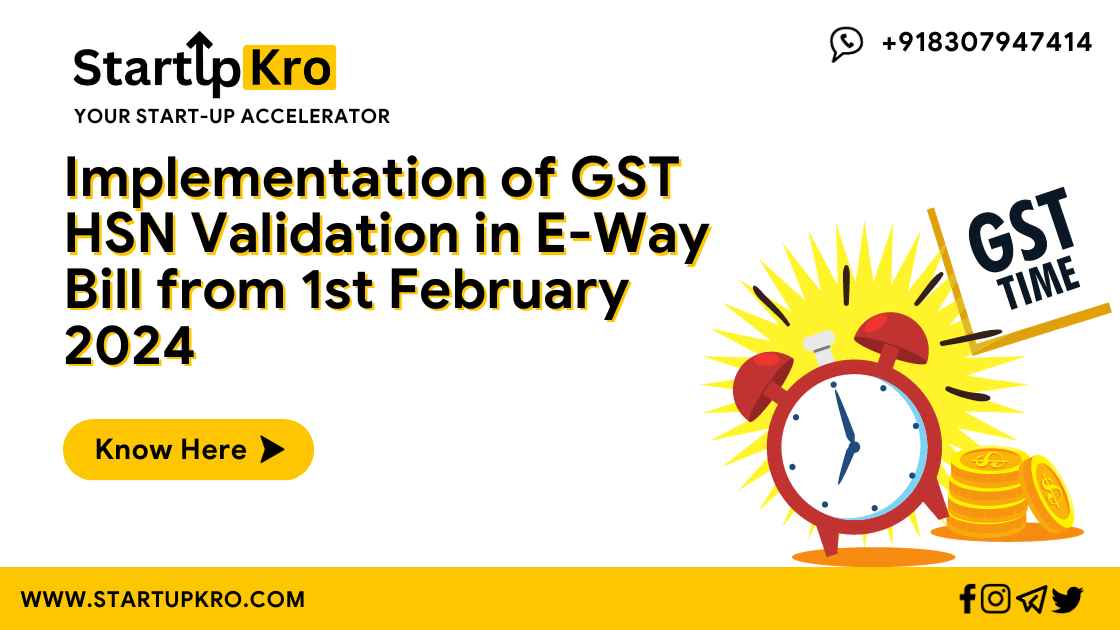
Top Government Schemes & Benefits for Startups and MSMEs in India
Startup India and Standup India! There are government initiatives aimed at providing support and benefits to startups and small and medium-sized enterprises (MSMEs) in India. The initiatives were launched in response to the economic challenges posed by demonetization and the

Subscribe To Our Weekly Newsletter
Startup India and Standup India! There are government initiatives aimed at providing support and benefits to startups and small and medium-sized enterprises (MSMEs) in India. The initiatives were launched in response to the economic challenges posed by demonetization and the COVID-19 pandemic. As of March 2022, unicorn startups in India are valued at over 319 billion dollars, and there are over 60,000 registered startups in the country. MSMEs contribute approximately 30% of India’s gross domestic product (GDP) and 50% of the nation’s exports. Given their significant contributions to the economy, it is essential for the government to provide support to these businesses through various central government schemes. In this article, we will discuss the top government schemes for startups and MSMEs in India.
Top government schemes for startups in India
1. Startup India Initiative
The Startup India initiative is a major government scheme aimed at supporting startups in India. Launched by Prime Minister Narendra Modi in 2016, the initiative has registered over 50,000 startups. Some of the benefits offered through the scheme include access to funds, tax exemptions, cost reductions for patents and trademarks, the ability to apply for government tenders, tax benefits for investors, and streamlined exits for businesses. To be eligible for the Startup India initiative, a startup must have been incorporated in India within the past 10 years, have the potential for growth and wealth creation, and be registered as a partnership, private limited company, or limited liability partnership in India. Additionally, the startup must have a scalable, innovative business model or work towards improving products and services.
The Startup India initiative offers several benefits to eligible startups in India, including:
- Access to funding: The central government has allocated INR 10,000 crore (approximately $1.4 billion) for startups, and has encouraged banks to provide capital to these businesses.
- Tax exemptions: Startups can receive a three-year tax holiday, which can be taken at any time within the first 10 years of incorporation. To qualify, startups must obtain certification from the Inter-Ministerial Board (IMB).
- Cost reductions: Startups can obtain patents, trademarks, and other compliance documents at a faster and more affordable rate, and can receive a discount of up to 80% on the cost of filing patents.
- The opportunity to apply for government tenders: The Indian government plans to spend INR 1.4 trillion (approximately $19 billion) on infrastructure in the next five years, providing opportunities for startups to participate in tenders.
- Tax benefits for investors: Investors in startups are eligible for capital gains tax, which can make investing in these businesses more attractive.
- Streamlined exits: Startups can close their businesses within 90 days according to the Insolvency and Bankruptcy Code of 2016. To be eligible for the Startup India initiative, a startup must have been incorporated in India within the past 10 years, have the potential for growth and wealth creation, and be registered as a partnership, private limited company, or limited liability partnership in India. The startup must also have a scalable, innovative business model or work towards improving products and services.
Eligibility Conditions
To be eligible for the Startup India initiative, a startup must meet the following criteria:
- The startup must have been incorporated in India within the past 10 years.
- The startup must have the potential for growth and wealth creation and must have a scalable, innovative business model or work towards improving products and services.
- The startup must be registered as a partnership, private limited company, or limited liability partnership in India.
- From the time of incorporation, the company’s turnover must not have exceeded INR 100 crore (approximately $13.5 million) in any financial year.
Startup India Seed Fund Scheme
The Startup India Seed Fund Scheme is a government program aimed at providing funding to very early-stage startups in India. The program has been allocated a budget of INR 945 crore (approximately $129 million) by the government of India and is expected to provide funding to 300 incubators and around 3,600 startups. Grants of up to INR 5 crore (approximately $680,000) will be provided to selected incubators, while startups may receive grants of up to INR 20 lakh (approximately $27,000) for the development of prototypes or trials and up to INR 50 lakh (approximately $68,000) for scaling their products or services
Eligibility for Seed Fund Scheme
To be eligible for the Startup India Seed Fund Scheme, a startup must meet the following criteria:
- The startup must have been incorporated in India within the past two years.
- The startup must not have received monetary grants of up to INR 10 lakh (approximately $13,500) from the central or state government.
The Support for International Patent Protection in Electronics and Information Technology (SIP-EIT) scheme is a government program that aims to support startups in increasing international patent filings by Indians and fostering a culture of innovation and research and development. The program provides reimbursement for expenses related to the international patent filing, including attorney fees, processing fees, and translation costs, up to a maximum of INR 15 lakh (approximately $20,000) or 50% of the total cost, whichever is less.
To be eligible for the Support for International Patent Protection in Electronics and Information Technology (SIP-EIT) scheme, a business must meet the following criteria:
- It must be an MSME-registered unit.
- It can be a Software Technology Park (STP) unit.
- The business must be registered as a company.
Top government schemes for MSMEs in India
Micro, Small, and Medium Enterprises (MSMEs) in India can access a number of government schemes to support their businesses, including:
- Pradhan Mantri Mudra Yojana (PMMY): This scheme provides loans and access to capital for non-farming and non-corporate sector MSMEs and startups. There are three categories of loans available: a. Shishu category: Companies can receive loans of up to INR 50,000 for small businesses and startups in their early stages. b. Kishor category: Mid-sized businesses seeking to expand can receive loans of up to INR 500,000. c. Tarun category: Experienced businesses can receive loans of up to INR 1,000,000.
- Credit Guarantee Trust Fund for Micro & Small Enterprises (CGTSME) scheme: This scheme provides collateral-free loans of up to INR 1 crore (approximately $135,000) to selected MSMEs and startups in India. It was launched by the Ministry of MSMEs and is one of the largest schemes for MSMEs in India.
- Standup India scheme: This initiative provides loans of between INR 10 lakh (approximately $13,500) and INR 1 crore to at least one woman entrepreneur or at least one SC/ST
Conclusion
In conclusion, there are a variety of government schemes available to support startups and MSMEs in India. These schemes are provided by both the central and state governments and offer a range of benefits including access to funds, tax exemptions, cost reduction, and opportunities to apply for tenders. Additionally, the private sector is also increasingly supporting startups and businesses through investments, technology partnerships, and other forms of collaboration. It is important for businesses to research and take advantage of the various support programs available to them to help their operations grow and succeed.
Share:

Book an Appointment
Schedule an Appointment with our Expert here.
Social Media
Most Popular


How to Respond to Trademark Objection


